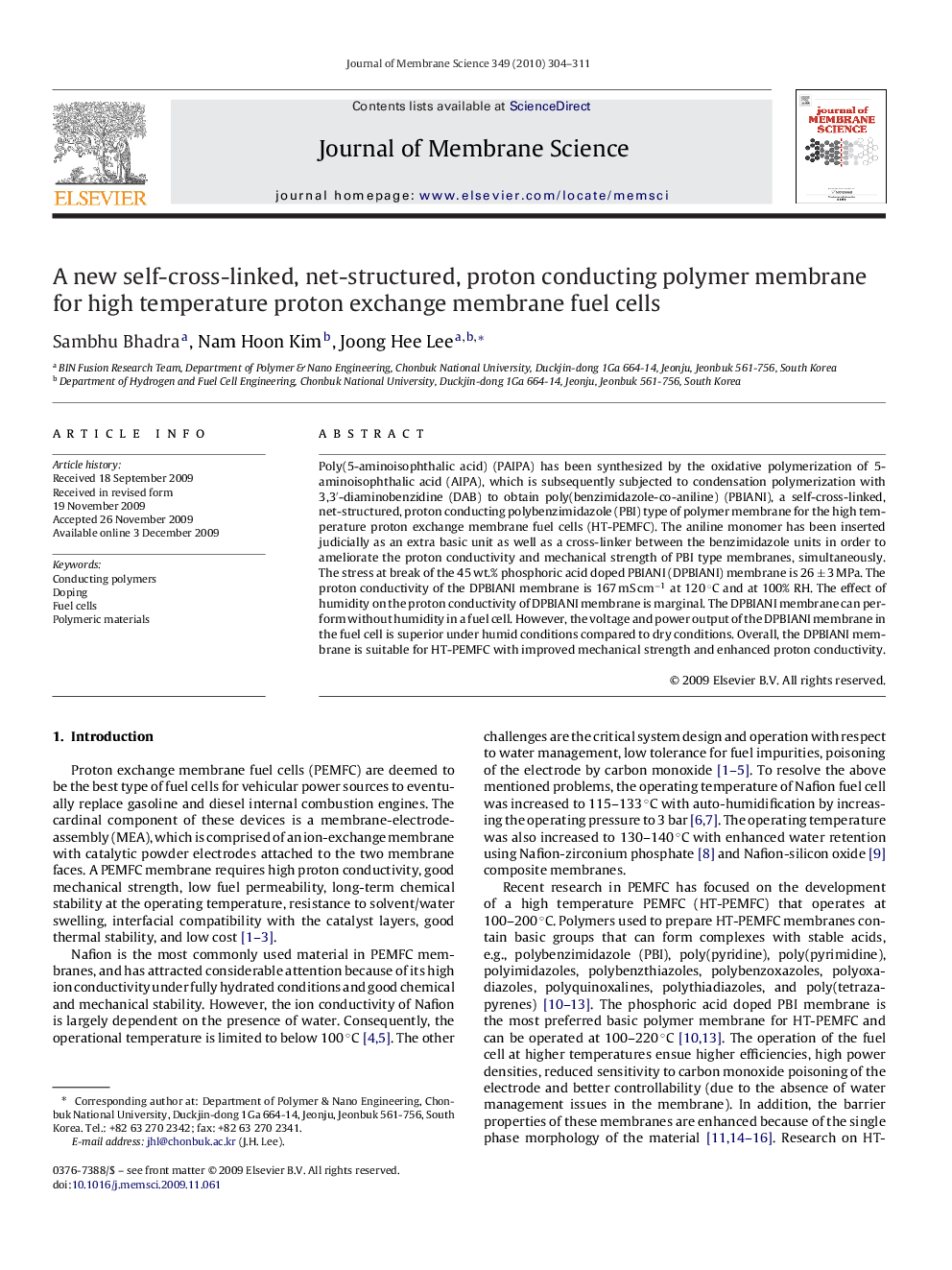| کد مقاله | کد نشریه | سال انتشار | مقاله انگلیسی | نسخه تمام متن |
|---|---|---|---|---|
| 636609 | 1456130 | 2010 | 8 صفحه PDF | دانلود رایگان |

Poly(5-aminoisophthalic acid) (PAIPA) has been synthesized by the oxidative polymerization of 5-aminoisophthalic acid (AIPA), which is subsequently subjected to condensation polymerization with 3,3′-diaminobenzidine (DAB) to obtain poly(benzimidazole-co-aniline) (PBIANI), a self-cross-linked, net-structured, proton conducting polybenzimidazole (PBI) type of polymer membrane for the high temperature proton exchange membrane fuel cells (HT-PEMFC). The aniline monomer has been inserted judicially as an extra basic unit as well as a cross-linker between the benzimidazole units in order to ameliorate the proton conductivity and mechanical strength of PBI type membranes, simultaneously. The stress at break of the 45 wt.% phosphoric acid doped PBIANI (DPBIANI) membrane is 26 ± 3 MPa. The proton conductivity of the DPBIANI membrane is 167 mS cm−1 at 120 °C and at 100% RH. The effect of humidity on the proton conductivity of DPBIANI membrane is marginal. The DPBIANI membrane can perform without humidity in a fuel cell. However, the voltage and power output of the DPBIANI membrane in the fuel cell is superior under humid conditions compared to dry conditions. Overall, the DPBIANI membrane is suitable for HT-PEMFC with improved mechanical strength and enhanced proton conductivity.
Journal: Journal of Membrane Science - Volume 349, Issues 1–2, 1 March 2010, Pages 304–311